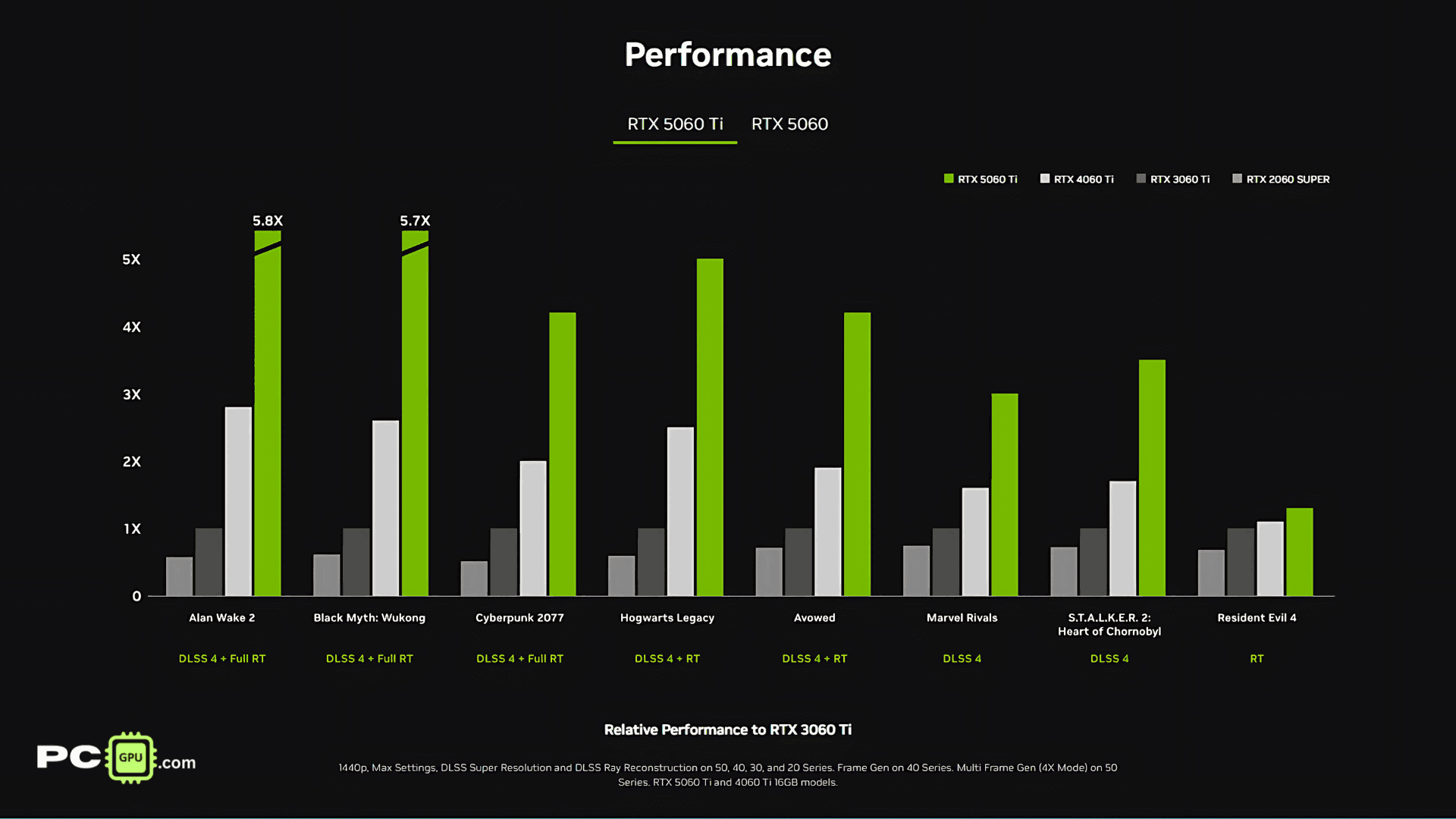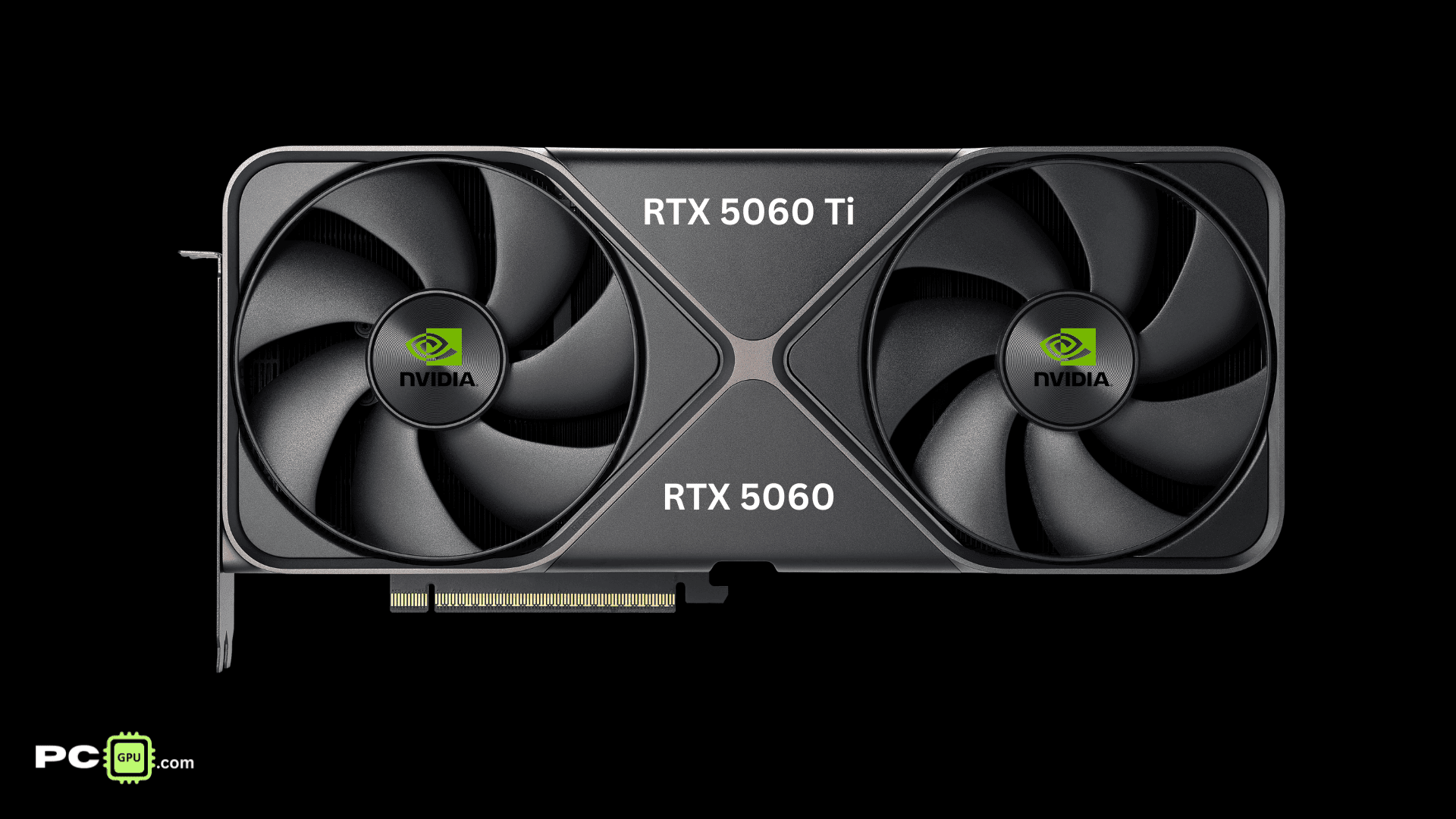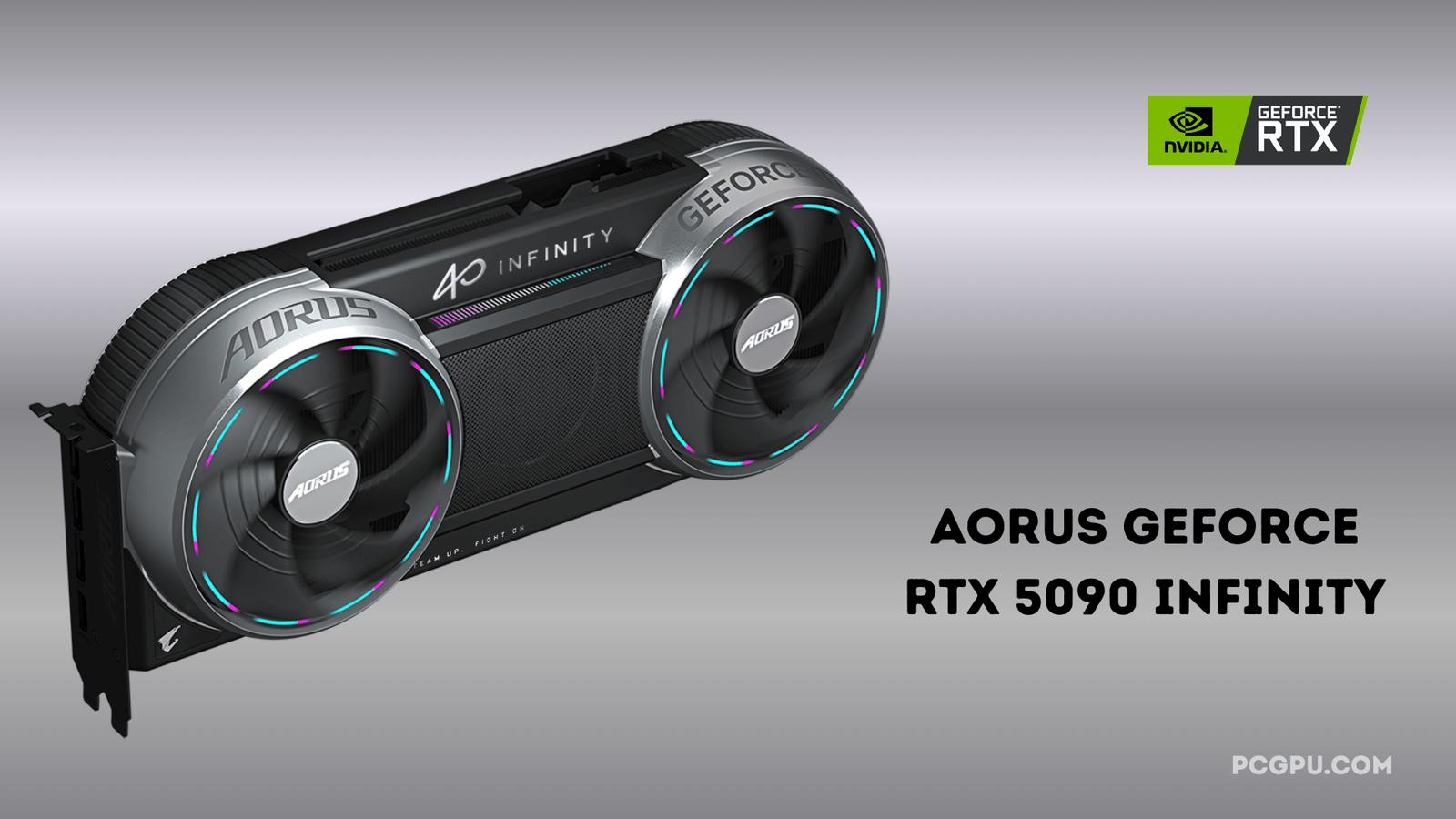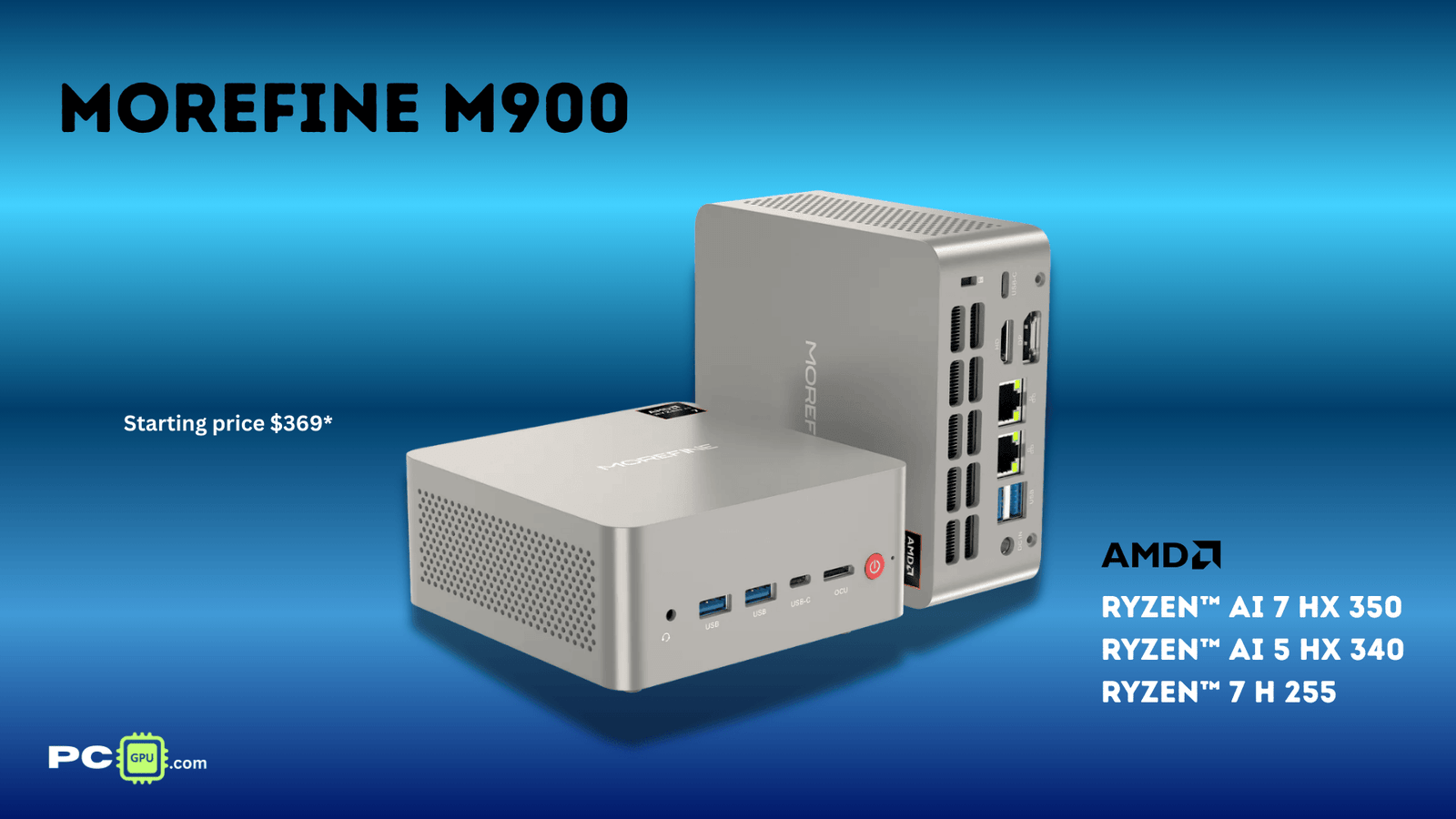Uncover the just-released NVIDIA RTX 5060 Ti and RTX 5060 GPUs based on Blackwell architecture. NVIDIA has officially added to its GeForce RTX 50-series roster with the release of two new mid-tier graphics cards: the RTX 5060 Ti and the RTX 5060.
The NVIDIA GeForce RTX 5060 Ti, released on April 15, 2025, is a landmark in mid-range graphics cards, featuring cutting-edge technology such as DLSS 4, GDDR7 memory, and the new Blackwell architecture. Produced on TSMC’s 5 nm process, it provides more performance and efficiency for gamers and content creators alike. It comes with 8GB and 16GB configurations, appealing to gamers who want high performance but not at the premium price.
Table of Contents

NVIDIA RTX 5060 Ti Specifications:
- GPU Architecture: Blackwell (GB206-300-A1)
- CUDA Cores: 4,608
- Base Clock: 2.4 GHz
- Boost Clock: 2.57 GHz
- Memory: 8GB / 16GB GDDR7
- Memory Bus: 128-bit
- Memory Bandwidth: 448 GB/s
- Ray Tracing Cores: 36 (4th Gen)
- Tensor Cores: 144 (5th Gen)
- TDP: 180W
- Interface: PCIe 5.0 x16
- Outputs: 1x HDMI 2.1b, 3x DisplayPort 2.1b
NVIDIA RTX 5060 Ti vs. RTX 5060: Specifications Comparison:
| Feature | RTX 5060 Ti | RTX 5060 |
|---|---|---|
| Release Date | April 16, 2025 | May 19, 2025 |
| CUDA Cores | 4,608 | 3,840 |
| Base Clock | 2.407 GHz | 2.280 GHz |
| Boost Clock | 2.572 GHz | 2.497 GHz |
| Memory | 8GB / 16GB GDDR7 | 8GB GDDR7 |
| Memory Bus | 128-bit | 128-bit |
| Memory Bandwidth | 448 GB/s | 448 GB/s |
| Ray Tracing Cores | 36 (4th Gen) | 30 (4th Gen) |
| Tensor Cores | 144 (5th Gen) | 120 (5th Gen) |
| TDP | 180W | 145W |
| Interface | PCIe 5.0 x8 | PCIe 5.0 x8 |
| MSRP | $379 (8GB) / $429 (16GB) | $299 |
| DLSS Support | DLSS 4 with Multi-Frame Generation | DLSS 4 with Multi-Frame Generation |
| DirectX Support | DirectX 12 Ultimate | DirectX 12 Ultimate |
Performance Highlights:

Image Source: NVIDIA
The RTX 5060 Ti delivers impressive performance in 1080p and 1440p gaming scenarios. With DLSS 4 support, it enhances frame rates and visual fidelity in demanding titles. The inclusion of GDDR7 memory and a 128-bit interface ensures high memory bandwidth, contributing to smoother gameplay experiences.
The RTX 5060 Ti, with its higher core counts and available 16GB VRAM option, is well-suited for gamers targeting higher resolutions or engaging in content creation tasks. In contrast, the RTX 5060 offers a more budget-friendly option for 1080p gaming, though its 8GB VRAM may be a limiting factor in future AAA titles.
- RTX 5060 Ti: With more CUDA, ray tracing, and Tensor cores, the 5060 Ti offers superior performance, especially in ray-traced games and AI-enhanced applications. The 16GB variant provides better future-proofing for upcoming titles demanding more VRAM.
- RTX 5060: While it has fewer cores, it still delivers solid performance for 1080p gaming. However, the 8GB VRAM may limit its capabilities in future AAA titles that require more memory.
Architectural Advancements:
The Blackwell architecture introduces several improvements over its predecessors, including enhanced ray tracing capabilities and AI-driven features. The 5nm manufacturing process contributes to better power efficiency and thermal performance, making the RTX 5060 Ti a compelling choice for mid-range builds.

Comparison with Previous Generation:
Compared to the RTX 4060 Ti, the RTX 5060 Ti offers:
- Increased CUDA Cores: From 4,352 to 4,608
- Higher Memory Bandwidth: From 288 GB/s to 448 GB/s
- Improved Ray Tracing and Tensor Cores: Enhanced performance in ray-traced and AI-driven applications
Pricing and Availability:
The RTX 5060 Ti is available in two variants:
- 8GB Version: Priced at $379 (after tax in India it Cost around 39,000)
- 16GB Version: Priced at $429 (after tax in India it Cost around 46,000)
The RTX 5060 is available in a single variant:
- 8GB Version: Priced at $299 (after tax in India it Cost around 33,000)
These cards are available through third-party manufacturers, as NVIDIA has not released a Founders Edition for this model.
Pros and Cons:
Nvidia RTX 5060 Ti:
Pros:
- Higher core counts for better performance
- Available in 16GB variant for enhanced future-proofing
- Better suited for higher resolutions and demanding games
Cons:
- Higher price point
- Increased power consumption
Nvidia RTX 5060:
Pros:
- More affordable, making it accessible for budget builds
- Lower power consumption
Cons:
- Limited to 8GB VRAM, which may not suffice for future games
- Reduced performance in ray tracing and AI tasks compared to the Ti variant
Final Thoughts:
The NVIDIA GeForce RTX 5060 Ti stands out as a strong contender in the mid-range GPU market, offering advanced features and solid performance at a reasonable price. Its support for DLSS 4, GDDR7 memory, and the efficient Blackwell architecture make it a future-proof choice for gamers looking to upgrade their systems.
Conclusion:
The choice between the RTX 5060 Ti and RTX 5060 depends on your specific needs and budget:
- Choose RTX 5060 Ti if:
- You aim for higher performance in gaming and content creation.
- You prefer a GPU that’s more future-proof, especially the 16GB variant.
- You’re willing to invest more for better performance.
- Choose RTX 5060 if:
- You’re building a budget-friendly gaming PC focused on 1080p gaming.
- You prioritize lower power consumption.
- You’re okay with potential limitations in future high-demand games.
Both GPUs support DLSS 4 and are built on the efficient Blackwell architecture, ensuring they bring modern features to mid-range builds. However, considering the increasing demands of upcoming games, investing in a GPU with more VRAM, like the RTX 5060 Ti 16GB, might offer better longevity.



